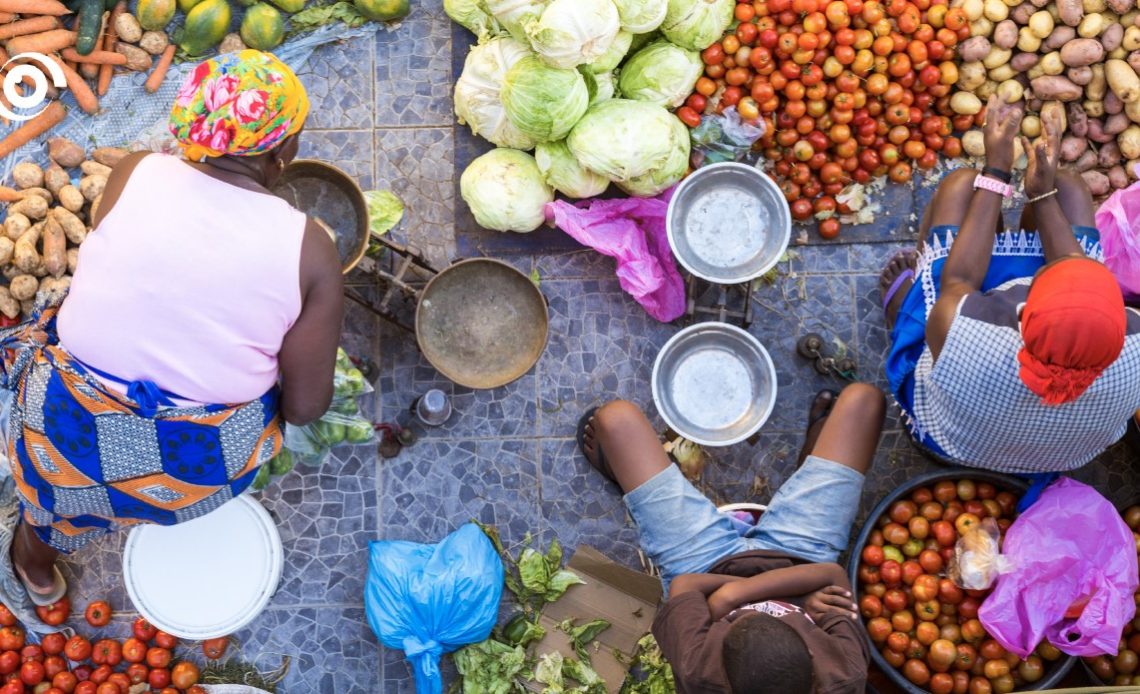Nigeria, like the rest of the world, is experiencing a food crisis, exacerbated by climate change, rising inflation and conflict such as the war in Ukraine. However, Nigeria is no stranger to conflict. Since 2009, the Northeast region has seen violent extremists terrorising the BAY (Borno, Adamawa and Yobe) States, with over 2 million people displaced, 8.7 million people in need and about 600,000 people facing emergency levels of food insecurity, women and children constituting more than 80% of those in need.
Projected to become the 4th most populous country in the world by 2050 behind China, India, and the United States of America, Nigeria’s robust agriculture sector has the potential to meet the needs of its burgeoning population, but where the country has faltered is in harnessing this potential.
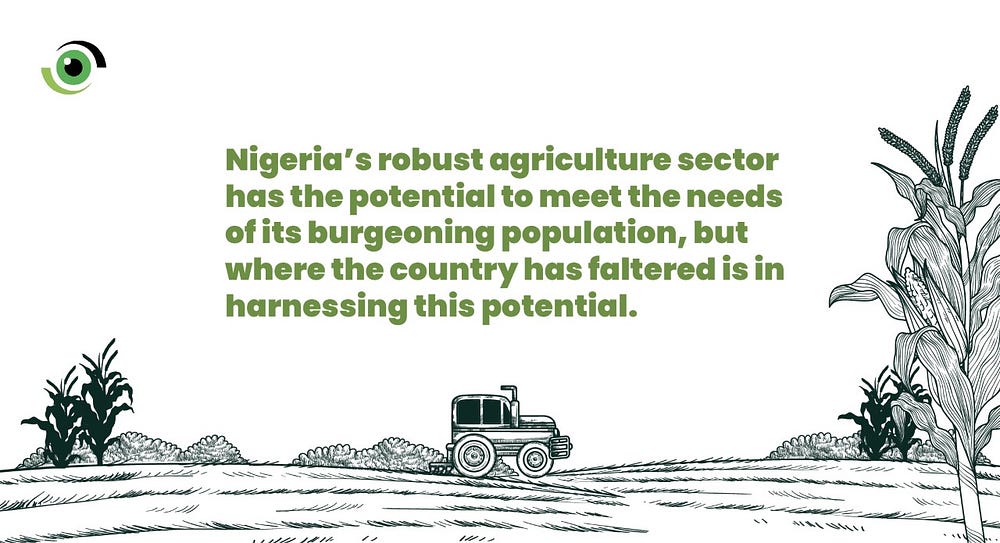
Nigeria has over 34 million hectares of arable land. In quarter one of 2022, agriculture accounted for 22.4% of the Gross Domestic Product (GDP) and over 70% of Nigerians engaged in agriculture, though primarily for subsistence. Despite its vast potential, food production is still largely insufficient as domestic demand outweighs production. This is primarily due to inadequate levels of irrigation, an outdated land tenure system and disruptions in the sector’s supply chain, which has been exacerbated by the COVID-19 pandemic. Also, in the Northwest, armed banditry, kidnapping and attacks on farming and herding communities in states like Sokoto, Katsina and Zamfara have worsened the situation. Farmers have been forced to abandon their farms or pay taxes to bandits in order to gain access, which has intensified the rising inflation and impacted food production.
This food crisis could significantly worsen the country’s health indices. Nigeria has the second highest burden of malnutrition in the world, with 32% of children under the age of five stunted or chronically malnourished. This is due to a variety of factors, most important of which is poor nutrition. Malnutrition comes with its attendant problems, including low immunity, which leaves children vulnerable to infections and increases the risk of death, worsening the country’s child mortality indices. This also poses a significant threat to economic development, as stunting leads to poor mental development, low performance in school and low productivity in adulthood, potentially resulting in economic losses of up to 11% of the GDP.
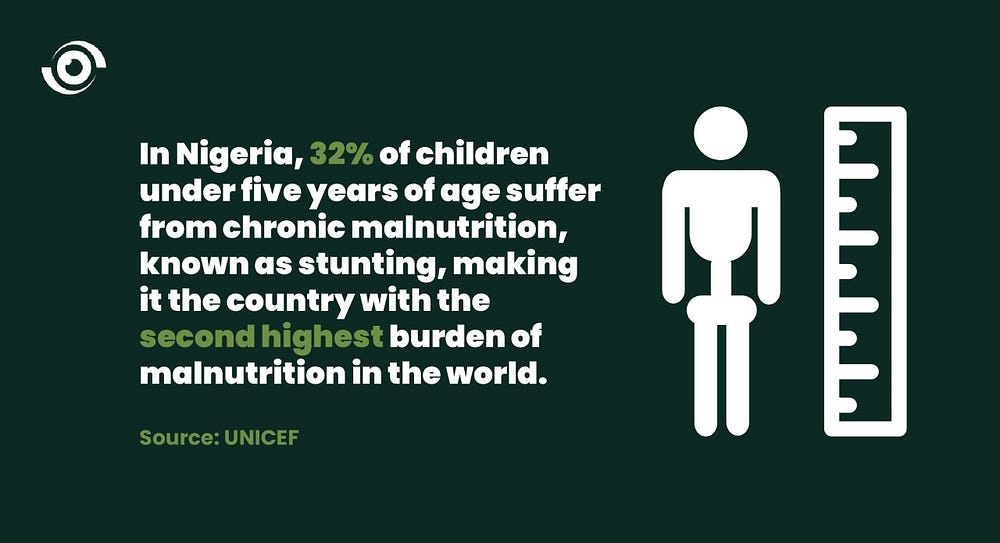
Food security, as defined at the 1996 World Food Summit, exists when all people, at all times, have physical and economic access to sufficient, safe and nutritious food that meets their dietary needs and food preferences for an active and healthy life.
This refers to four key dimensions;
(i)food availability (in sufficient quantity and quality, whether through local production or imports)
(ii) access (adequate resources to acquire food as appropriate for nutrition)
(iii) utilisation (of available food through appropriate diet, clean water, sanitation and healthcare, for nutritional well-being)
(iv) stability (having access to adequate food at all times).
Ensuring food availability
Achieving food security will require a multipronged approach. There is a clear need to increase food production in order to meet domestic demand and improve the country’s exportation capacity, which would in turn, drive economic growth.
Borno State, for example used to be the highest wheat producing State, accounting for 30% of Nigeria’s wheat. As a result of the insurgency in the region, Borno now contributes very little to the country’s wheat production, which has in turn increased wheat imports into the country. Nigeria continues to rely heavily on importation.
While the Federal Government has taken steps to improve local food production and reduce reliance on imports, such as the ban on importation of rice in 2019, the Agriculture Promotion Policy, Presidential Economic Diversification Initiative, and others, there is still work to be done. Nigeria, for example still produces only 57% of its rice consumption. There is a need to implement initiatives to increase food production, such as sustainable land development, innovative and efficient agriculture practices and green initiatives to address damage to Nigeria’s forest ecosystems, caused by deforestation, urbanisation and infrastructure development.
Access to resources
Poverty is one of the root causes of food insecurity; the lack of resources to acquire sufficient food to meet a family’s nutritional needs is a significant barrier to food security in most households. In March 2022, World Bank data revealed that only 17% of Nigerian workers were employed in jobs that paid enough to lift them out of poverty. Furthermore, the 2022 Nigeria Multidimensional Poverty Index, estimates that 133 million people, approximately 66% of the population, are multidimensionally poor.
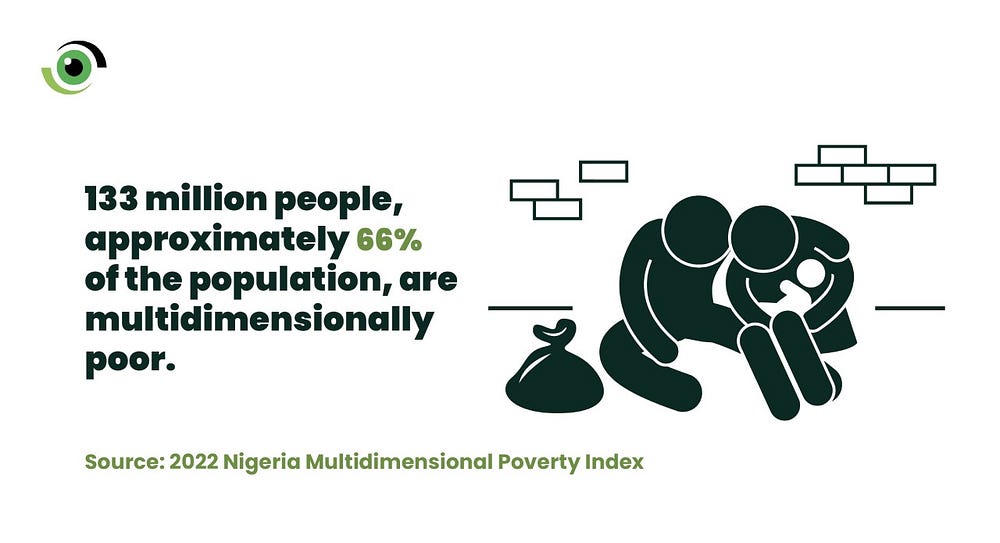
Climate change and conflict further aggravate the situation even more. Families have had to employ coping strategies such as reducing food consumption and education, which worsens their prospects of being able to afford adequate and high-quality food, further limiting their ability to improve their economic conditions — it is a vicious cycle. Poverty is both a cause and a consequence of hunger.
To address barriers to food security, there is a need to increase human capital development and boost education, which would improve the people’s economic conditions and empower them with needed resources. There is also a clear need to address the rising food inflation in Nigeria which has reached an all-time high of 24.13%, and is largely driven by the previously mentioned factors.
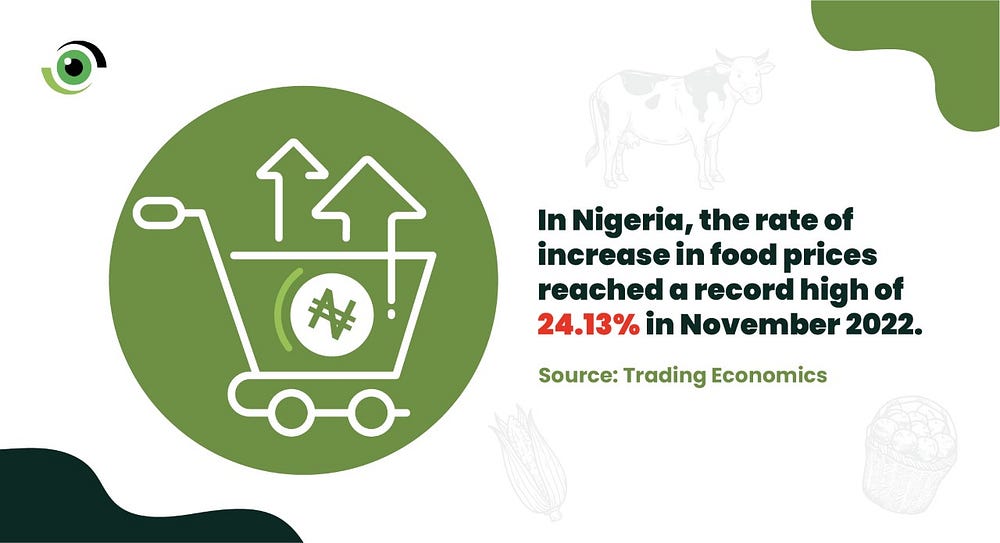
Food loss and waste
Despite the dismal indices of food availability and access, Nigeria loses and wastes 40% of its total food along the supply chain, from production to consumption. There is a need to reduce waste by providing farmers with the right information, equipment, and skills to protect their crops and livestock from damage, improving storage and transportation facilities and conditions, including ensuring better means of transportation, and improving urban waste management.
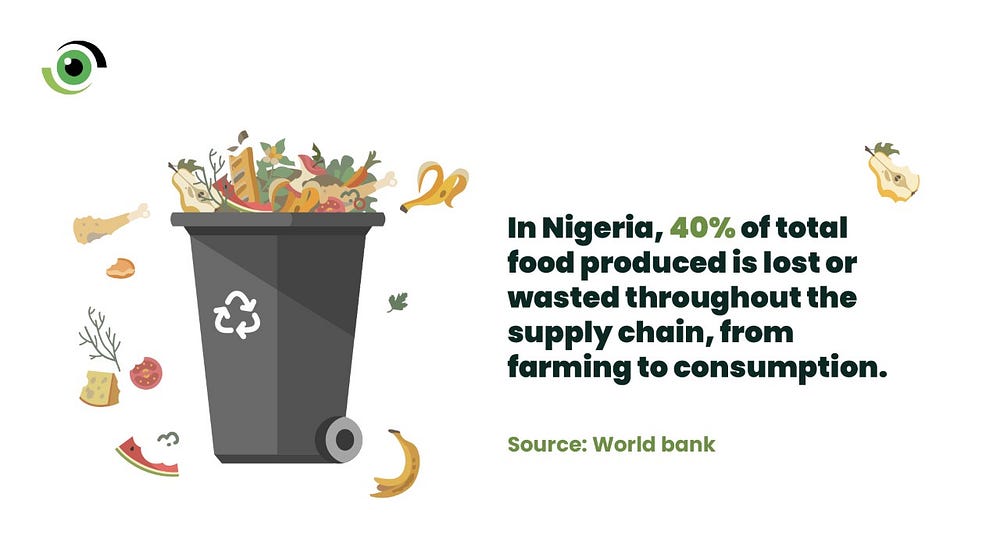
Global poverty, hunger and malnutrition are three of the most pressing developmental issues that must be addressed and the world is still a long way from meeting the Sustainable Development Goals (SDGs). Food security will directly impact the attainment of the first two SDGs — no poverty and zero hunger, as many of the world’s poor, hungry and malnourished live in rural areas and are dependent on the agriculture sector for their food and livelihoods.
It is critical that Nigeria implement systems and processes in place to address economic and physical barriers to accessing food at all times, in the right quality and quantity to ensure that nutritional needs for a healthy, productive, and fulfilled life are met.


